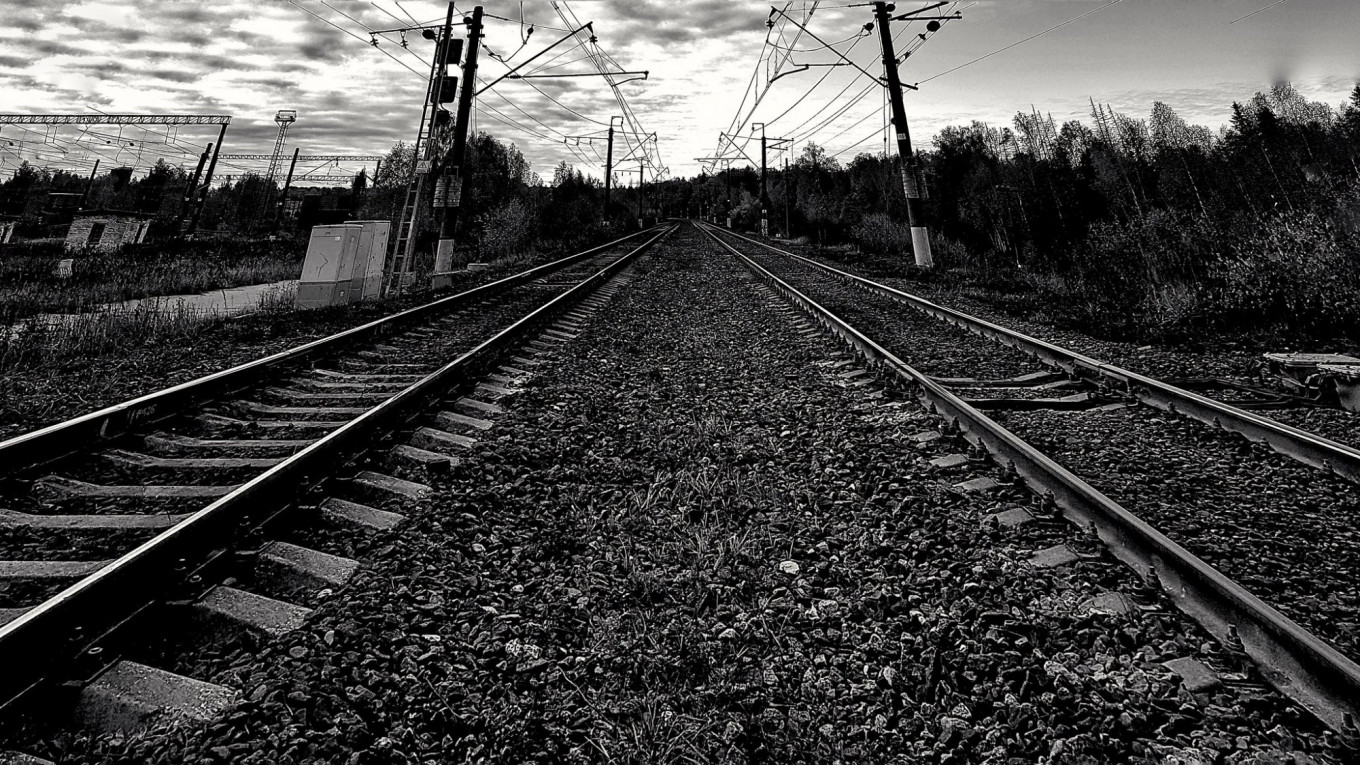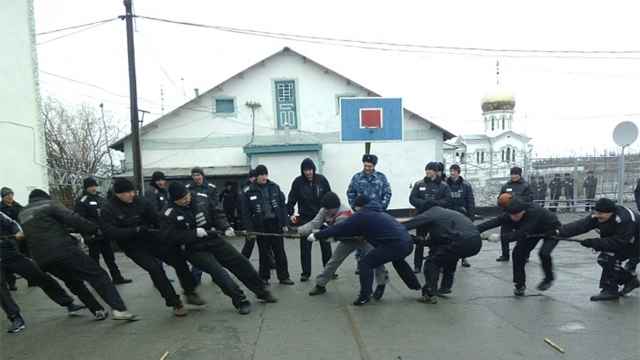Russia's prison service on Thursday said that convicts would be sent to construct a new section of the Baikal-Amur Mainline track (BAM) in Siberia, a railway partially built by Gulag prisoners.
Amid labor shortages Russian government officials have discussed plans to use prison labor for major construction projects but they insist there are no plans to revive the Stalin-era Gulag practice.
The BAM track spans over 4,000 kilometers running from Lake Baikal in eastern Siberia to the Sea of Japan in the Far East.
Conceived in the 1930s, it was one of the largest and most costly projects of the Soviet Union that claimed the lives of tens of thousands of Gulag prisoners sent to the labour camps under dictator Joseph Stalin.
"An agreement was signed on the intent to use convict labour and create a site that functions as a correctional facility," state news agency RIA Novosti quoted a spokesman for Russia's Federal Prison Service (FSIN) as saying.
Alexander Tchernoyarov, who heads one of the main companies involved in the project, pointed to a "serious shortage of manpower," with many migrant workers unable to enter Russia due to the coronavirus pandemic.
The Russian military said in April that it would contribute to the modernisation of the BAM track but more manpower was needed to fill the 15,000 vacant positions.
Around 40,000 prisoners died when building the railway in the 1930s, but many researchers consider this figure to be an underestimate.
"It will not be a Gulag," FSIN head Alexander Kalashnikov told rights officials in May, speaking of plans to use prison labor.
He added that the labourers would enjoy "decent conditions" and receive a salary.
The new section of the BAM railway will be 340 kilometers long and work is set to begin in the spring.
In March, the prison service said it was considering whether to mobilise convicts to clean up pollution in the Arctic.
A Message from The Moscow Times:
Dear readers,
We are facing unprecedented challenges. Russia's Prosecutor General's Office has designated The Moscow Times as an "undesirable" organization, criminalizing our work and putting our staff at risk of prosecution. This follows our earlier unjust labeling as a "foreign agent."
These actions are direct attempts to silence independent journalism in Russia. The authorities claim our work "discredits the decisions of the Russian leadership." We see things differently: we strive to provide accurate, unbiased reporting on Russia.
We, the journalists of The Moscow Times, refuse to be silenced. But to continue our work, we need your help.
Your support, no matter how small, makes a world of difference. If you can, please support us monthly starting from just $2. It's quick to set up, and every contribution makes a significant impact.
By supporting The Moscow Times, you're defending open, independent journalism in the face of repression. Thank you for standing with us.
Remind me later.






